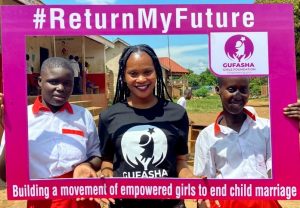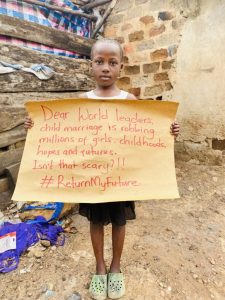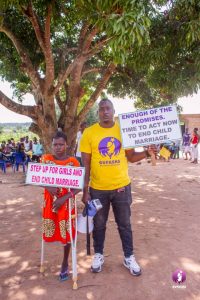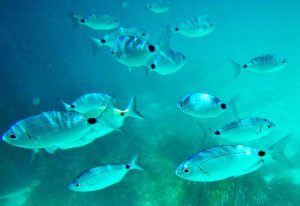IN A NUTSHELL
Editor's Note
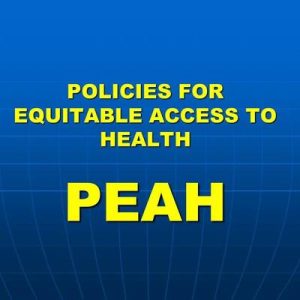 How can the present ‘broken deal’ within humanity and with nature be restored? With this in mind, this far-reaching reflection piece takes into most account the global political and economic governance failure, increasingly evident during the first two decades of the 21st century, as the root, driven by greed, cause of global human injustice and nature destruction. And this occurs at a time when unempathetic (between humans and much lower with other forms of life), maniputaled and/or passive societies continue to play a negative role.
Against this backdrop, aside from implicitly advocating for decision makers worldwide to overturn the evidence that public interest almost regularly succumbs to the interest of the powerful, this analysis also suggests that a potential solution “lies in fostering a new societal paradigm rooted in empathetic local governance, ecosystem-friendly production and consumption of essential needs, and collaborative digital innovation to advance human knowledge and create global benefits”
How can the present ‘broken deal’ within humanity and with nature be restored? With this in mind, this far-reaching reflection piece takes into most account the global political and economic governance failure, increasingly evident during the first two decades of the 21st century, as the root, driven by greed, cause of global human injustice and nature destruction. And this occurs at a time when unempathetic (between humans and much lower with other forms of life), maniputaled and/or passive societies continue to play a negative role.
Against this backdrop, aside from implicitly advocating for decision makers worldwide to overturn the evidence that public interest almost regularly succumbs to the interest of the powerful, this analysis also suggests that a potential solution “lies in fostering a new societal paradigm rooted in empathetic local governance, ecosystem-friendly production and consumption of essential needs, and collaborative digital innovation to advance human knowledge and create global benefits”

By Juan Garay
Professor of Global Health Equity Ethics and Metrics in Spain (ENS), Mexico (UNAChiapas), and Cuba (ELAM, UCLV, and UNAH)
Co-founder of the Sustainable Health Equity movement
Restoring Broken Human Deal
It appeared that the ending of the wars of the 20th century, referred to in China as “European” wars, led to a collective effort in establishing the United Nations, despite the devastating US nuclear bombing of Japan. However, one might argue that it was more of an arrangement among the victorious powers, centered around the Security Council’s authority, with the human rights charter serving as a superficial facade lacking enforceability. Historical evidence seems to support this perspective.
The post-war era saw a surge in global cooperation, centered on the US Marshall Plan and the interlinking of Western market economies. It also witnessed the formation of alliances among former adversaries in Europe and the emergence of independence movements in African nations, which were still under colonial subjugation. However, alongside these developments, the United States supported fascist regimes in the Americas and engaged in unsuccessful conflicts against communism in Asia and elsewhere. The Cold War intensified nuclear threats and polarized the world until the fall of the Berlin Wall. Meanwhile, China quietly pursued a strategy of combining global trade with communist single-party national development plans, resulting in the fastest GDP and life expectancy growth rates recorded (1). This approach represents one of the most successful blends of market and centralized economies in terms of human lifespan, albeit at the cost of restrictions on freedom and environmental degradation.
During the first two decades of the 21st century, the Cold War appeared to transition into a multipolar landscape, notably with the decline of Russia and the economic and geopolitical ascendance of China.
Meanwhile, humanity witnessed the diminishing impact of two major death tolls by the close of the 20th century: the AIDS pandemic (2) and the aftermath of the Soviet Union’s collapse (3). Globally, under-five and adult mortality rates decreased, and life expectancy continued its upward trajectory (4), increasing by approximately 0.5% annually. Concurrently, advancements in digital technology, particularly in understanding the human genome (5), as well as in applied technologies, nanotechnologies (6), and 3D protein mapping and engineering (7), pushed the boundaries of knowledge.
However, despite these advancements, the two primary global health challenges since the 1980s persisted: intra- and inter-generational inequities (sustainable equity) (8). The World Health Organization (WHO) continued to grapple with the elusive task of estimating inequities through inequalities across relevant stratifying variables (9), failing, even after 75 years, to adequately measure the only common health objective among nations (best feasible level of health) (10). Consequently, the burden of health inequity (11), representing the gap to the universality of the right to health, remained unmeasured.
Efforts to identify such a target faced challenges from UN development models (12) (with the best Human Development Indexes largely unreplicable and unsustainable), World Bank poverty thresholds (13) (falling short of enabling the aforementioned feasible health levels), and the OECD-DAC cooperation target of 0.7% from 1970, which stood at only 0.37% over 50 years later, in any case significantly below the redistribution rates necessary for economic equity and thus global health equity (14).
Why does such persistent reluctance exist to measure global health progress and challenge the persistence of anachronistic development, economic, and cooperation concepts?
While the transition from MDGs to SDGs aimed to standardize targets across all countries, bridging the gap between intra (MDGs and SDGs 1-11) and inter (SDGs 12-16, COP, and Biodiversity targets), and overcoming north-south polarization (15), it fell short of fully translating rhetoric into action, to put it diplomatically.
Meanwhile, global political and economic governance remained entrenched in the hands of the Security Council, dominated by World War II victors, and international financial institutions revolving around the US dollar, thus perpetuating US economic supremacy (16).
The low commitment to global fair governance does reflect the meager overall UN regular budget (17): less than 0.00002% of the world’s GDP. It is supplemented by ad hoc and earmarked funding primarily from Western development agencies and “philanthropy” linked to economic powers and vested interests. In the case of global health governance, under the World Health Assembly and the World Health Organization, regular contributions to the WHO’s budget do not reach 20% (18), with a growing influence of ad hoc contributions of mainly Western development agencies, philanthropic endowments or direct influence from pharmaceutical companies (19) whose profits primarily stem from patent monopolies (20).
Against this backdrop, Humanity grappled with three intertwined challenges: the economic speculative crisis of 2008-2010, the COVID-19 pandemic of 2020-2022, and ongoing conflicts in Ukraine and Gaza. Though seemingly disparate, these challenges share common roots that have hindered sustainable health equity progress since the 1980s and also contribute to the escalating existential threat of anthropogenic global warming:
- Economic speculation, primarily driven by bargaining economic interests rather than creativity or production, has evolved into increasingly complex layers and holds greater power, particularly in the hands of massive asset managers (21). This system has been hoarding roughly 20-30% of GDP (22) and a significant portion of GDP growth over the past four decades, diverting resources away from global human justice and decoupling from global human wellbeing (23). Such speculative economy is a major part of what we earlier called “hoarding threshold” (24) and has been recently called “wasted GDP” (25). Furthermore, it exacerbates both economic intra (correlated with increasing GINI) and inter-generational (linked to climate change through global-scale production, trade, and consumption) inequity (26). Therefore, a more appropriate term for it would be “toxic GDP,” behaving akin to a cancer in the global economy and human harmony with nature. This dynamic continues to propel and dominate not only the global economy and lifestyles but also, linked to power-driven mass media and artificial intelligence, global human thinking. It perpetuates a biased economic governance that shields the primary speculative powers, often resulting in diminished or even nonexistent fiscal revenues (27). Western positions have opposed the development of a UN Tax Treaty aimed at addressing the unmentioned undermining effects of financial speculation (28).
- The COVID pandemic exposed how global governance prioritizes capital over humanity. Despite significant scientific and economic investments in urgent global goods such as effective vaccines, the response was heavily biased in favor of big pharma, accelerating the rollout of their new patent-protected technologies, such as mRNA, (with remaining mid-long germ safety uncertainty) (29) primarily benefiting high-income countries and communities. This unequal access to vaccines exacerbated disparities and polarized humanity, reminiscent of the AIDS gap in the 1990s (30). In this instance, the disparity between those protected from the pandemic and those exposed correlates with individuals “working” behind screens, often closely associated with a speculative or toxic economy, versus those fulfilling essential needs such as food, water, energy, transportation, and vital public services. Global governance failed to establish binding frameworks for global goods, and exemptions to patent laws for public health purposes proved slow and ineffective, prioritizing profits over the health and lives of the majority (31).
- Ongoing wars are related to a growing West-East and North-South divide and tension. The “north and west” has approximately one sixth of the world population, yet two thirds of the world’s GDP, of the military spending, of global carbon and ecological footprint and also two thirds of the veto power in the security council. Their oligarchic role in global economy and politics, as mentioned above, is progressively challenged (32). The most recent wars on Ucraine and Gaza, reflect reactions to the rupture of fragile balances of a NATO vs. Russia and its growing alliances with China, and the Arab league vs. Israel and its US Big brother. Western double standards (33) confronting Russia’s invasion while being supportive or complacent with Israel alleged genocide (34) undermine its former -at least intentional-multilateralism and human rights discourse. Meanwhile, the tension grows between the two major powers, the US and China, over the sovereignty of Taiwan (35), where also most chips (the neurons of global economy and communication) come from. Global political and military governance proved weak and biased as anachronic security council permanent members’ veto power (36) overruled the global cry to stop bombing innocent civilians, notably in Gaza.
The abovementioned crisis revealed an enhanced Humanity’s “broken deal”, unable to collectively limit toxic GDP and its impact on nature, develop global goods to confront increasing natural disasters and pandemics due to human’s destruction of nature and to prevent military, including nuclear threats, abuse by some. Economic, ecologic, knowledge, political and military global governance are either biased, void and/or broken.
As a result, human wellbeing, as gauged by life expectancy, dropped for the first time after the post war humankind (rhetoric?) deal (37) and is not picking up after the pandemic in many regions (38). Intragenerational health inequity, with a burden of some 16 million excess and unfair and preventable deaths per year remained high (39) while we expect comparable international demographic data to assess the post-pandemic trend in the present 2020-2025 period. The prospects of excess intergenerational mortality surpass 220 million excess deaths in the remains of the century, mainly in low polluting countries, communities and age groups (40).
These root causes of global human injustice and nature destruction have a common root: unempathetic (between humans and much lower with other forms of life), maniputaled and/or passive societies (41). The combination of economic, knowledge and military powers driven by greed, with passive and submissive societies fuels speculative and ecologically destructive global economic powers through blind consumption and savings, selfish protection of unfair individual, corporate and national privileges, unequitable access to what should be global public goods, and power market and media-driven voting, forced tax contributions to maintains the status quo and even military recruitment to kill unknown-others mandates by power greed far from the battlefields.
How can the present broken deal within Humanity and with nature, be restored?
If governments have proven incapable or unwilling to build human justice for the last 75 years, can individuals and societies roll back the rising intra and intergenerational gaps and restore the “broken deal”?
Interestingly, as biased governance frameworks interrelate so do the counter dynamics societies may put in motion. Enhanced conscience of our present largely collective blind consumption, savings, taxes and votes may trigger a new philosophy beyond anthroposophism towards biosophism, of simplicity, solidarity and respect for human and nature biodiversity (42).
Digital means can help know the individual (43) and collective economic (preventing toxic GDP/consumption) and ecological (preventing excess carbon and ecological footprint) ethical thresholds.
If “toxic GDP” shrinks and eventually collapses, political and military powers may follow.
A growing number, particularly among younger generations, seeks to break free from the relentless global urban rat race of excessive production and consumption (44, 45). A potential solution lies in fostering a new societal paradigm rooted in empathetic local governance, ecosystem-friendly production and consumption of essential needs, and collaborative digital innovation to advance human knowledge and create global benefits.
This transformative system could result in a significant reduction (around 40%) in GDP (considered as toxic share), while simultaneously narrowing the gap in inequality from the current international GINI coefficient of 0.6 and average national coefficient of 0.45 to a more equitable range between the thresholds of dignity and excess (below 0.15 GINI); while keeping carbon emissions and ecological footprints below ethical thresholds (approximately 1 metric ton and 1 hectare annually per capita, respectively). (39)
By ensuring that living standards exceed the dignity threshold (greater than $10 per person per day) (39) for all individuals and providing universal access to preventive and treatment services, as well as essential global goods such as life-saving knowledge, products, and devices, this approach could help achieve the elusive and often overlooked global health objective of attaining the best feasible level of health for all, thereby averting an estimated 16 million unjust deaths annually.
This global, peaceful revolution aimed at restoring sustainable equity has the potential to reverse the current troubling trends and steer humanity toward brighter horizons.
References
1)https://www.statista.com/statistics/1041350/life-expectancy-china-all-time/
2)https://www.unaids.org/en/resources/fact-sheet
3)https://academic.oup.com/book/10210/chapter/157873288
4)https://www.thelancet.com/journals/lancet/article/PIIS0140-6736(17)31833-0/fulltext
5)https://pubmed.ncbi.nlm.nih.gov/23284016/
6)https://www.iinano.org/frontiers/
7)https://deepmind.google/technologies/alphafold/
8)http://www.peah.it/2021/04/9658/
9)https://health-inequalities.eu/jwddb/who-health-equity-monitor/#:~:text=The%20WHO%20Health%20Equity%20Monitor,resources%20for%20health%20inequality%20monitoring.
10)https://treaties.un.org/doc/Treaties/1948/04/19480407%2010-51%20PM/Ch_IX_01p.pdf
11)https://www.peah.it/2015/10/understanding-measuring-and-acting-on-health-equity/
12)http://scielo.sld.cu/pdf/rnp/v18n36/1817-4078-rnp-18-36-87.pdf
13)https://www.binasss.sa.cr/eng.pdf
14)https://sdgpulse.unctad.org/development-financing/
15)https://www.undp.org/publications/transitioning-mdgs-sdgs
16)https://scholar.google.com/scholar?hl=fr&as_sdt=0%2C5&q=us+dollar+global.economic+governance+biased&btnG=#d=gs_qabs&t=1713263714000&u=%23p%3DK7uNOI1zKk8J
17)https://betterworldcampaign.org/resources/briefing-book-2022/united-nations-budget
18)https://www.who.int/about/funding
19)https://www.europarl.europa.eu/doceo/document/E-9-2020-002335_EN.html
20)https://www.sciencedirect.com/science/article/pii/S0954349X23000048
21)https://www.afr.com/companies/financial-services/how-asset-managers-came-to-rule-the-world-20230428-p5d3zk
22)https://www.investopedia.com/ask/answers/030515/what-percentage-global-economy-comprised-financial-services-sector.asp
23)https://www.epi.org/publication/charting-wage-stagnation/
24)https://www.sciencedirect.com/science/article/pii/S0033350617301610
25)https://www.nature.com/articles/s41599-023-02210-y
26)https://earth.org/gdp-climate-change/
27)https://www.cristianismeijusticia.net/sites/default/files/pdf/en170.pdf
28)https://taxjustice.net/press/un-adopts-plans-for-historic-tax-reform/
29)https://www.mdpi.com/1422-0067/24/2/1404
30)https://www.peah.it/2022/01/10563/
31)https://www.hrw.org/news/2023/04/19/proper-pandemic-treaty-would-value-universal-access-over-profit
32)https://geopoliticaleconomy.com/2024/02/26/western-dominance-ended-eu-josep-borrell/
33)https://mondediplo.com/2024/01/01editorial
34)https://news.un.org/en/story/2024/01/1145937
35)https://www.researchgate.net/publication/375000050_Will_the_US_and_China_Go_to_War_over_Taiwan
36)https://press.un.org/en/2022/ga12473.doc.htm
37)https://www.thinkglobalhealth.org/article/global-life-expectancy-declines-first-time-30-years
38)https://www.scientificamerican.com/article/why-life-expectancy-keeps-dropping-in-the-u-s-as-other-countries-bounce-back1/
39)http://www.peah.it/2021/04/9658/
40)https://www.peah.it/2018/07/5498/
41)https://journals.sagepub.com/doi/full/10.1177/0169796X211068451
42)https://www.peah.it/2023/12/12800/
43) https://g.co/kgs/MoYB7vQ
44)https://www.pas.va/content/dam/casinapioiv/pas/pdf-volumi/extra-series/es41pas-acta19pass.pdf
45)https://apnews.com/article/china-youth-lifestyle-nomad-thailand-086c064470a11365acfafbd4457ba166
By the same Author on PEAH
Towards a WISE – Wellbeing in Sustainable Equity – New Paradigm for Humanity
A Renewed International Cooperation/Partnership Framework in the XXIst Century
COVID-19 IN THE CONTEXT OF GLOBAL HEALTH EQUITY
Global Health Inequity 1960-2020
Health and Climate Change: a Third World War with No Guns
Understanding, Measuring and Acting on Health Equity
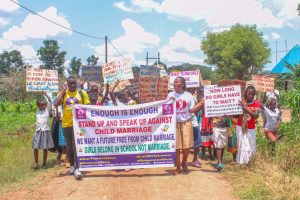 PEAH: How many girls is Gufasha Girls Foundation currently looking after?
PEAH: How many girls is Gufasha Girls Foundation currently looking after? 